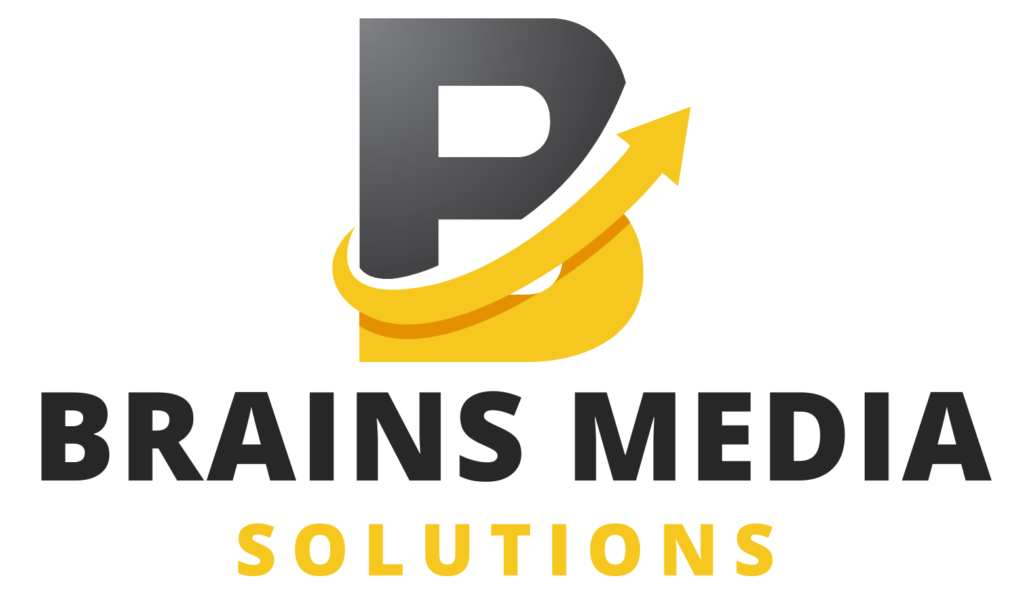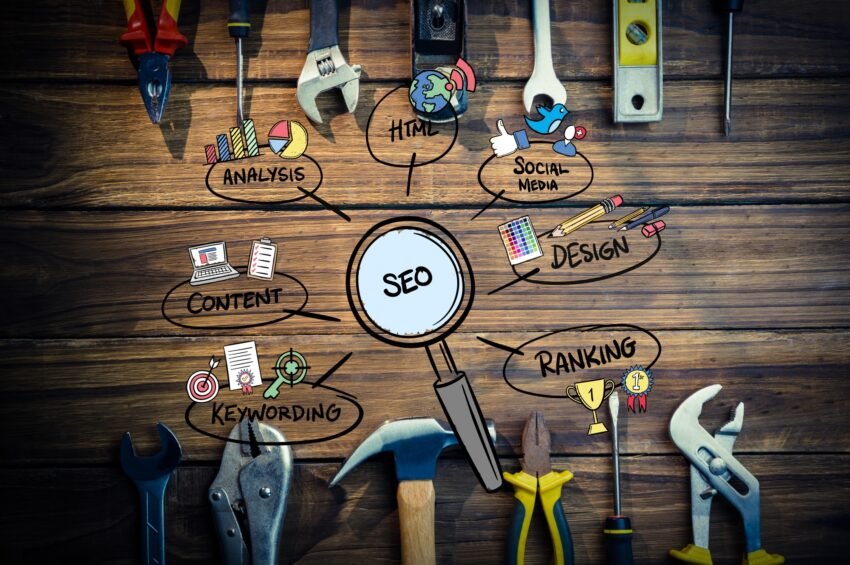Search engine optimization (SEO) is a powerful way of increasing the visibility of pages in search engines such as Google. The higher your website ranks on search engines, the greater its potential to attract business for your brand.
Your search engine optimization strategy can be categorized into two distinct areas: on-page SEO and off-page SEO. Both play vital roles in the success of an SEO campaign, but they operate on separate fronts.
In this blog, we will dive deep into the world of SEO optimization tools that can help you optimize your website effectively.
What is SEO?
As defined earlier, SEO is the process of optimizing a website to enhance its visibility and ranking on search engine results pages (SERPs). This involves techniques like keyword research, content optimization, link building, and technical improvements. The primary objective of SEO is to drive organic traffic and improve a website’s visibility in search engine rankings.
Types of SEO
There are two main types of SEO: On-Page SEO and Off-Page SEO.
On Page SEO
- Optimizes individual web pages
- Focuses on higher rankings & relevant traffic
- Enhances visibility & relevance in search results
- Emphasizes content quality, relevance, and structure
- Includes keyword optimization to target specific search queries
- Optimizes HTML elements and tags for better search engine visibility
On Page SEO
- Involves building backlinks
- Focuses on improving rankings on search engine results pages (SERPs)
- Helps to establish website authority
- Emphasizes link building, social presence, and online reputation
- Utilizes backlinks to indicate website popularity and authority
- Leverages social media platforms & other websites to increase website visibility
On Page SEO Checklist
The on-page SEO checklist serves as an invaluable tool in maximizing your website’s potential and skyrocketing its search engine rankings. By meticulously adhering to these tried-and-true hacks, you’re just a step away from attaining top-tier visibility in search results.
Quality content
Producing high-quality content plays a vital role in on-page SEO. It is imperative to create valuable, unique content that resonates with your target audience. Incorporate keywords strategically throughout your content, including in the title, headers, and meta tags. Optimize images by using descriptive alt tags and compressing file sizes for faster loading. Ensure your website has a user-friendly design and layout, promoting easy navigation and clear calls to action. Consistently updating and refreshing your content helps maintain its relevance and engagement for both users and search engines.
Page titles & meta descriptions
Optimizing page titles and meta descriptions is an essential aspect of on-page SEO. These elements provide valuable information about your web page to search engines and users. When optimizing page titles, it’s crucial to accurately describe the content using relevant keywords. Remember to create compelling and informative page titles that captivate searchers’ attention and accurately represent your content.
Meta descriptions, on the other hand, provide a concise summary of the page’s content and can impact click-through rates. Craft engaging meta descriptions that entice users to click through to your web page. Implementing these on-page SEO strategies can help elevate your website’s visibility in search results, leading to increased website traffic and improved rankings.
URL structure
When it comes to on-page SEO, one crucial aspect often overlooked is the URL structure of your webpages. Crafting URLs that are descriptive and reflect the content is essential for optimizing your website. Gone are the days of long, complicated URLs filled with random numbers and special characters. Instead, prioritize using hyphens between words to improve readability and search engine optimization.
By adopting a clean and concise URL structure, you not only benefit search engines in understanding your content but also enhance the user experience. Remember, a well-structured URL is a gateway to better organic rankings and increased visibility in search engine results.
Header tags
Header tags, including H1, H2, and H3, are essential when it comes to organizing and emphasizing content for search engines. Each webpage should have a distinct and accurate H1 tag that precisely represents the content it contains. H2 and H3 tags can be effectively employed to further categorize and structure the information presented on the page.
Integrating relevant keywords into these header tags is a vital aspect of optimizing your SEO. By properly formatting these header tags using HTML markup, you ensure that search engines can properly identify and interpret them. Achieving optimal SEO is made easier by utilizing header tags effectively throughout your webpages.
Keyword optimization
Effective keyword optimization plays a vital role in boosting on-page SEO performance. By strategically placing relevant keywords throughout your content, you can enhance the visibility and ranking of your web pages. Start by conducting comprehensive keyword research to identify the best keywords for your website. Once you have your target keywords, incorporate them into your title tag, meta description, page headings, and content.
Remember to use variations of your target keywords naturally, without resorting to overstuffing. Furthermore, optimize your URLs by including relevant keywords, and craft a compelling meta description that accurately describes the content using strategic keyword placement.
Image optimization
Optimizing images is a fundamental component of on-page SEO. It plays a pivotal role in improving your website’s loading speed and enhancing the overall user experience. When it comes to image optimization, some key considerations should be kept in mind. Firstly, select the appropriate file format for your images, like JPEG or PNG, to ensure optimal quality and compatibility.
Additionally, compressing your images effectively minimizes their file size, enabling faster loading times. Incorporating descriptive file names and alt tags is also crucial as they assist search engines in comprehending the content of your visuals. Lastly, resizing your images appropriately helps maintain an optimal page load speed, preventing any potential slowdown.
Internal linking
Internal linking is an essential component of on-page optimization. It facilitates search engines in comprehending your website’s organization and users in easily navigating through your content. When incorporating internal links, it is crucial to utilize descriptive anchor text and connect pages that are thematically connected. Efficient internal linking adheres to best practices and enhances your website’s user experience, search engine ranking factor, and navigational convenience.
Schema markup
Schema markup, also known as structured data markup, is a powerful technique for enhancing your website’s visibility and understanding by search engines. Utilizing schema markup involves adding specific code to your website’s HTML, enabling search engines to better comprehend the content and context of your webpages.
By implementing schema markup, you can improve your website’s appearance in search results with visually appealing and informative rich snippets, including star ratings, images, and additional details.
From articles and reviews to events and products, schema markup allows you to provide relevant information about different types of content. Boost your SEO efforts by embracing schema markup and leveraging the wide range of tools available for its generation and implementation.
Readability & formatting
Creating content that is easy to read and understand is crucial for on-page SEO. Improve the readability of your content by using headings, subheadings, bullet points, and shorter paragraphs. These formatting techniques make your content more pleasing to the eye. Make sure to naturally incorporate relevant keywords throughout your content without going overboard.
Additionally, optimize your page titles, meta descriptions, and URLs with descriptive keywords to improve your SEO ranking. Enhance the overall user experience and credibility of your content by including internal and external links to authoritative sources. Lastly, remember to use alt tags for images to provide context for search engines and improve accessibility. By following these readability and formatting guidelines, you can create high-quality content that both users and search engines will appreciate.
Off Page SEO Checklist
The off-page SEO checklist is a valuable resource for optimizing your website’s visibility and ranking in search results. By implementing the below off-page SEO strategies, you can improve your website’s ranking and attract more organic traffic.
High-quality backlinks
The building blocks of a successful off-page SEO strategy lie in the realm of backlinks. These invaluable links connect various websites and direct traffic to your own online domain. In the vast landscape of search engine rankings, earning quality backlinks from reputable sources holds undeniable importance.
Through a various strategies, such as guest posting, social media promotion, and influential alliances, you can forge meaningful connections within your industry or niche. Vigilance, too, plays a vital role, as regularly examining and evaluating your backlink profile will help weed out any unwelcome associations that could hamper your SEO endeavors.
Social signals
Social signals are a vital aspect of off-page SEO. They refer to the engagement and activity on social media platforms related to your website or content. This includes likes, shares, comments, and the overall visibility of your content on social media. Social signals hold great significance as they enhance your website’s credibility and authority in the eyes of search engines.
To optimize off-page SEO and boost social signals, focus on:
- Creating high-quality shareable content
- Actively engaging with your audience
- Responding to comments, and
- Participating in relevant discussions
Online reputation & reviews
Building a strong online reputation and garnering positive reviews are critical factors that can greatly impact your off-page SEO. Your website’s credibility and search engine rankings are heavily influenced by how others perceive your brand online. Positive reviews and high ratings not only enhance your website’s credibility but also contribute to its overall search engine performance.
To establish a stellar online reputation, it is crucial to encourage your customers to provide honest feedback by delivering exceptional products or services. Keep a close eye on reviews, responding promptly to both positive and negative feedback, demonstrating your commitment to customer satisfaction.
Active engagement with your audience on social media helps build a positive image and fosters trust in your brand. Furthermore, acquiring backlinks from reputable websites can strengthen your online reputation and bolster your off-page SEO efforts.
Brand mentions
Building brand mentions is a vital component of off-page SEO. These mentions involve your brand or website being referenced on external platforms, even without direct links. Such mentions significantly contribute to elevating brand awareness, enhancing credibility, and driving organic traffic to your website.
To effectively manage and capitalize on brand mentions, utilize monitoring tools like Google Alerts or social media listening tools. Encouraging brand mentions can be achieved through a multifaceted approach, including the creation of valuable content, engagement with industry influencers, and active participation in relevant events and discussions.
By integrating these strategies into your off-page SEO efforts, you can elevate your search engine rankings and establish a stronger online presence.
Influencer marketing
In the world of SEO, influencer marketing emerges as a highly effective off-page strategy. It involves partnering with influential individuals or brands to promote your website or products, tapping into their massive following and credibility. Through collaborations, you can significantly boost brand awareness, drive valuable traffic, and elevate your SEO rankings.
The key to success lies in selecting relevant influencers with impressive engagement rates. Whether it’s sponsored posts, guest blogging, social media shoutouts, or product reviews, the range of collaborative opportunities is vast. By establishing clear goals, tracking results, and adapting with precision, you can harness the immense power of influencer marketing to achieve outstanding SEO outcomes.
Social bookmarking
In the realm of off-page SEO, social bookmarking emerges as a powerful technique to skyrocket your website’s visibility and popularity. It involves the strategic submission of your links to various reputable social bookmarking sites like Reddit, Digg, or StumbleUpon.
By bookmarking your web pages on these platforms, you can attract a steady stream of traffic and witness a significant boost in your search engine rankings. Moreover, social bookmarking platforms serve as valuable hubs for users to save and share captivating web pages, amplifying the visibility and reach of your content.
However, it is of utmost importance to employ ethical practices while leveraging social bookmarking, steering clear of spamming or excessive self-promotion. This ensures the preservation of your brand’s credibility and sustains the long-term effectiveness of your SEO endeavors.
Guest blogging
Guest blogging is an invaluable off-page SEO technique that allows you to establish your authority and expand your reach in the online world. By writing and publishing articles on relevant and reputable websites, you can build high-quality backlinks and increase your website’s visibility. This strategy enables you to tap into a wider audience and drive targeted traffic to your site.
When selecting websites for guest blogging opportunities, prioritize those with a strong domain authority and relevance to your niche. These sites can provide valuable backlinks that contribute to better search engine rankings. It’s crucial to create content that adds value to readers, offering insights, tips, or expert advice rather than focusing on self-promotion.
Including natural and relevant links within your guest blog posts enhances the visibility of your website and drives traffic. This mutually beneficial collaboration between bloggers and websites helps establish credibility, generate leads, and increase brand visibility.
Free On-Page SEO Checkers
Conclusion
Optimizing your website for SEO requires a combination of on-page and off-page techniques. Remember that SEO is an ongoing process that requires continuous monitoring, analysis, and adaptation. Stay updated with the latest trends and algorithm changes to maintain a competitive edge in search results.
Contact us today if you would like to know more about how our On-Page and Off-Page SEO Strategies can add value to your business. Contact us at +91 95355 33588 or email us at contact@brainsmediasolutions.com.




